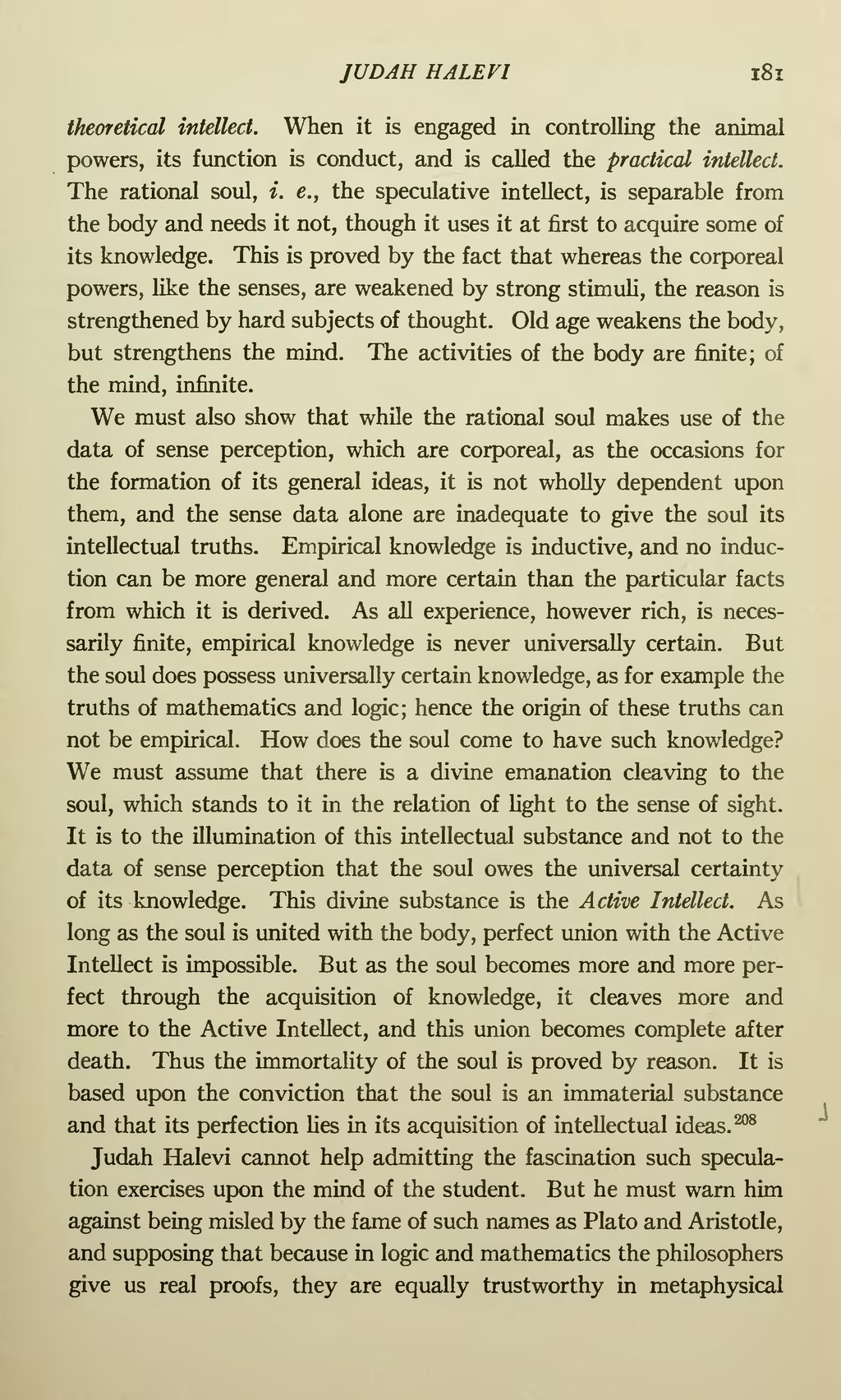theoretical intellect. When it is engaged in controlling the animal powers, its function is conduct, and is called the practical intellect. The rational soul, i. e., the speculative intellect, is separable from the body and needs it not, though it uses it at first to acquire some of its knowledge. This is proved by the fact that whereas the corporeal powers, like the senses, are weakened by strong stimuli, the reason is strengthened by hard subjects of thought. Old age weakens the body, but strengthens the mind. The activities of the body are finite; of the mind, infinite.
We must also show that while the rational soul makes use of the data of sense perception, which are corporeal, as the occasions for the formation of its general ideas, it is not wholly dependent upon them, and the sense data alone are inadequate to give the soul its intellectual truths. Empirical knowledge is inductive, and no induction can be more general and more certain than the particular facts from which it is derived. As all experience, however rich, is necessarily finite, empirical knowledge is never universally certain. But the soul does possess universally certain knowledge, as for example the truths of mathematics and logic; hence the origin of these truths can not be empirical. How does the soul come to have such knowledge? We must assume that there is a divine emanation cleaving to the soul, which stands to it in the relation of light to the sense of sight. It is to the illumination of this intellectual substance and not to the data of sense perception that the soul owes the universal certainty of its knowledge. This divine substance is the Active Intellect. As long as the soul is united with the body, perfect union with the Active Intellect is impossible. But as the soul becomes more and more perfect through the acquisition of knowledge, it cleaves more and more to the Active Intellect, and this union becomes complete after death. Thus the immortality of the soul is proved by reason. It is based upon the conviction that the soul is an immaterial substance and that its perfection Hes in its acquisition of intellectual ideas.[1]
Judah Halevi cannot help admitting the fascination such speculation exercises upon the mind of the student. But he must warn him against being misled by the fame of such names as Plato and Aristotle, and supposing that because in logic and mathematics the philosophers give us real proofs, they are equally trustworthy in metaphysical
- ↑ 208
